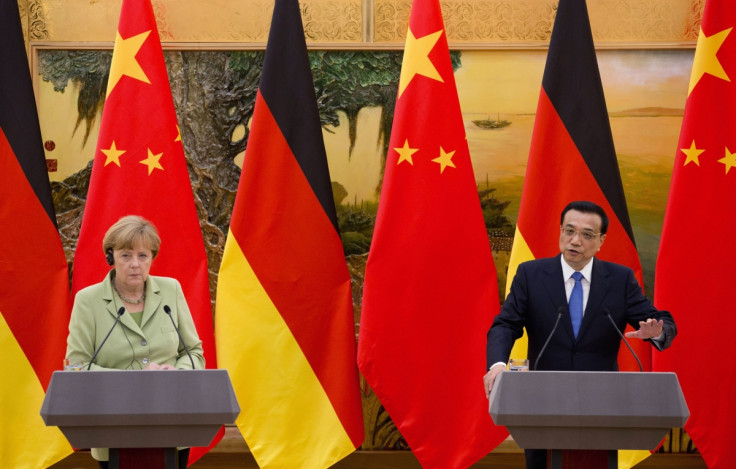Merkel in Beijing to Expand German-China Trade Relations

German Chancellor Angela Merkel is in China this week, with trade discussions topping the items on her agenda.
Bilateral trade between the two is already enormous: China is Germany's second largest export market after the US, accounting for €67bn (£53bn, $91bn) last year, while Germany imported €73bn worth from China.
Merkel flew into Chengdu on Sunday accompanied by a string of high-profile business leaders, representing everyone from Volkswagen to Siemens to Deutsche Bank, with the aim of expanding the relationship.
Reflecting the tack adopted by other European leaders including David Cameron, she is not expected to make a public reference to China's questionable human rights record, most notably its track record in Tibet.
Merkel met with the Dalai Lama, Tibet's spiritual leader, in 2007 and came in for sharp criticism from Beijing. The decision to leave it off the public agenda is indicative of the value Merkel places on Germany's trade ties with China.
Merkel's delegation will be looking to ink sweeping trade deals with Chinese counterparts; Li Keqiang recently toured Europe with a group of Chinese companies, many of which signed trade deals with companies in the UK and Greece.
Later on Monday she will meet with the China-Germany Economic and Trade Commission before meeting with China's President Xi Jinping.
A recent report by the European Council on Foreign Relations found that "a new special relationship" is being established between the two.
"Europe's future relationship with China will be determined by Germany's rapidly evolving bilateral relationship with China. The danger of this new special relationship is that it could undermine European strategic and economic interests," the authors wrote.
Merkel's decision to speak publically on the alleged US spying on German intelligence, in the presence of the US's biggest economic rival was also telling today.
Last week a German member of staff at BND - Germany's foreign intelligence agency - was placed under arrest under suspicion of selling German intelligence documents to US spies.
"If the reports are correct, it would be a serious case," she said on Monday at a news conference in Beijing.
Premier Li, speaking at the same news conference, offered his support for Merkel, denying that China is involved in cyber espionage: "China and Germany, it can be said, are both victims of hacking attacks," she said.
© Copyright IBTimes 2025. All rights reserved.






















